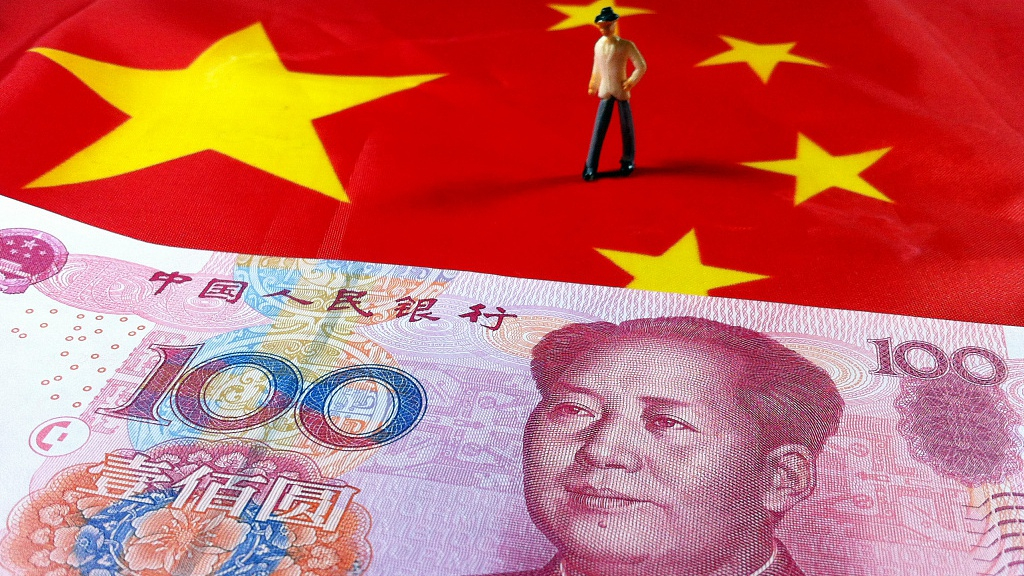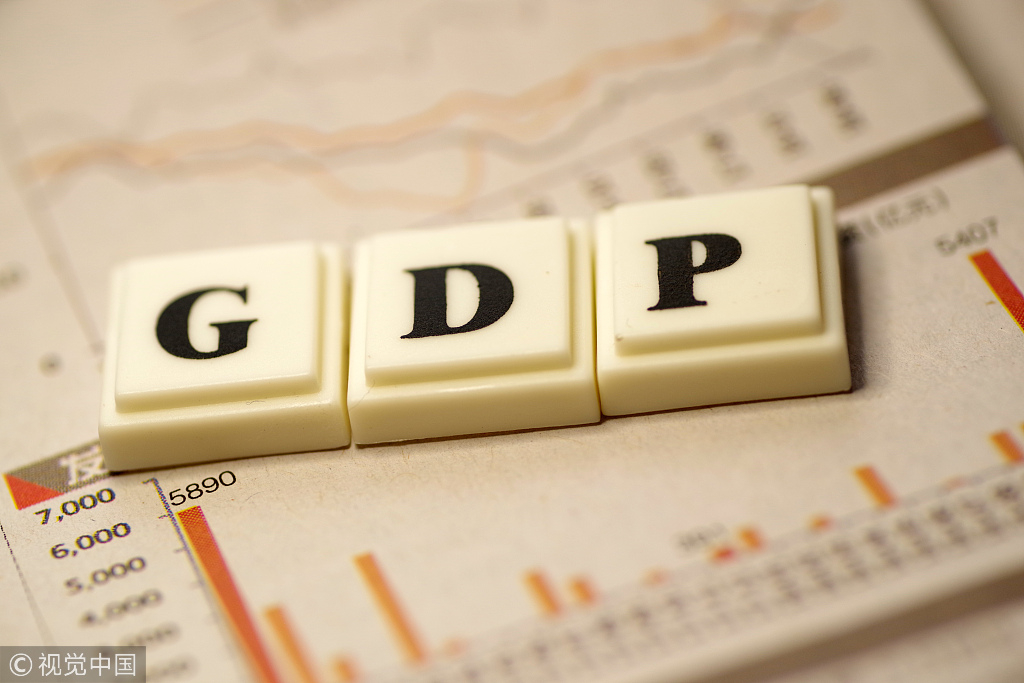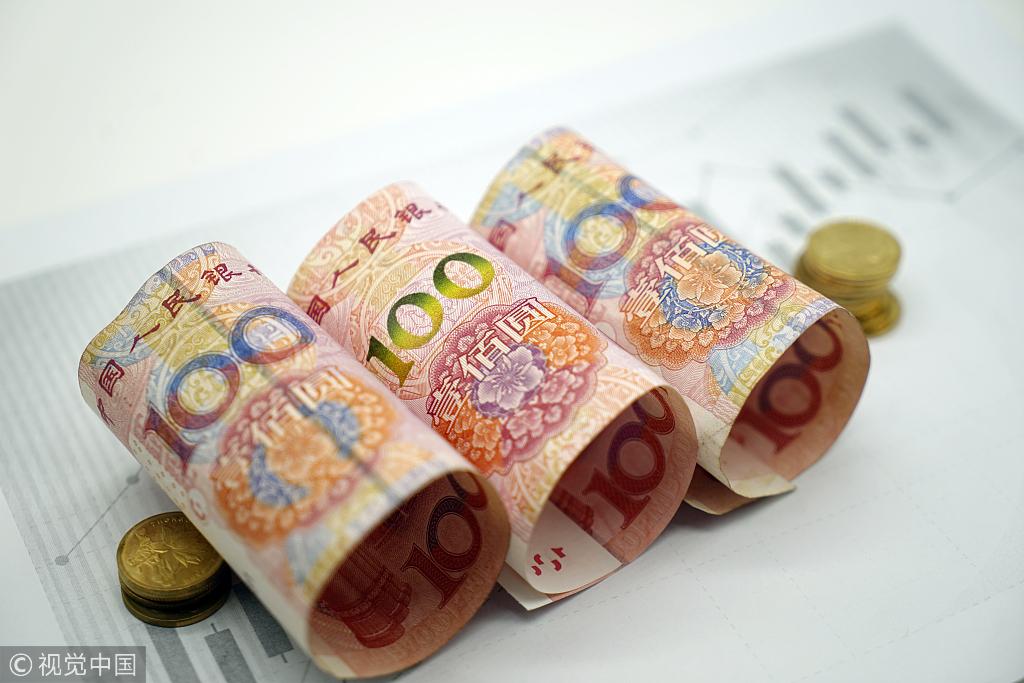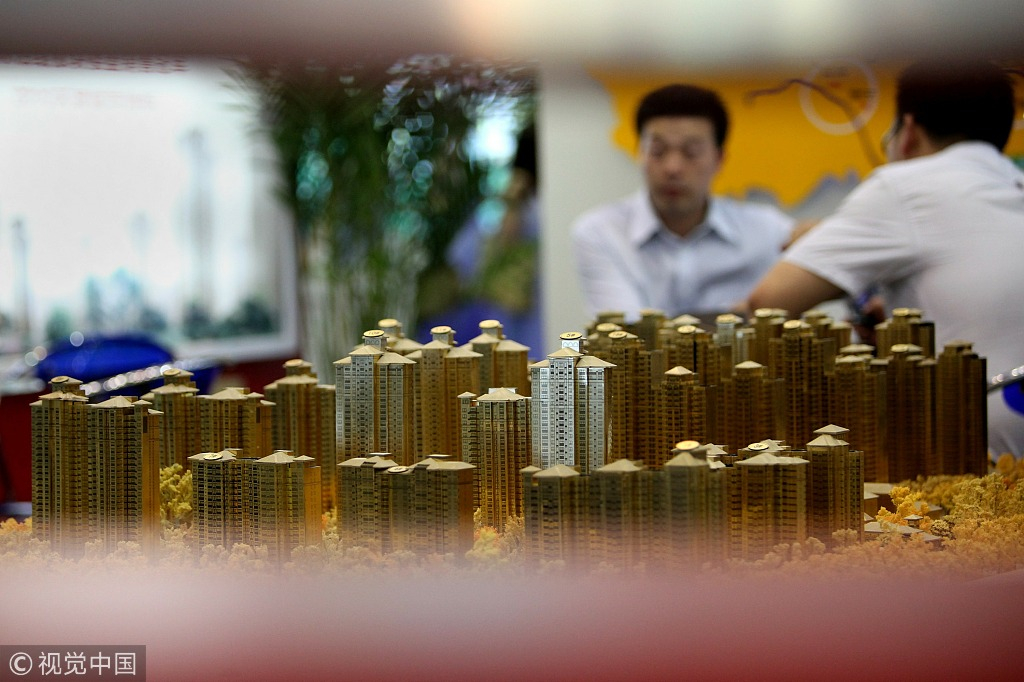
Opinion
11:01, 14-Feb-2019
Why should you still favor China's economy?
Updated
17:38, 14-Feb-2019
Chen Jiahe

Editor's note: Chen Jiahe is the chief strategist at Cinda Securities. The article reflects the author's opinion, and not necessarily the views of CGTN.
Ever since the early 1990s, there have been articles concerned with the future of China's economy. However, almost 30 years later, this economy is still healthy and growing rapidly.
So should we still favor China's economy and its investment opportunities?
China's economy still has huge potential
According to the International Monetary Fund (IMF), in 2017, China's per capita GDP was 8,643 U.S. dollars. While this didn't seem bad for a country with almost 1.4 billion people, it is quite low compared with developed economies around the world.
In contrast, the United States had a per capita GDP of 59,792 U.S. dollars in 2017. With the same gauge, the numbers were 39,800, 38,448 and 29,938 for the United Kingdom, Japan and South Korea respectively.

Growth Domestic Product. /VCG Photo
Growth Domestic Product. /VCG Photo
The government is effective
Overall, China's government is quite effective with its responsibilities, which include many aspects, such as anti-crime, building a good health care system, anti-corruption, developing infrastructure, and maintaining financial market stability, among others.
Evidence can be found for every aspect above, but it would be too wordy to list them all.
Just take a look at the last point: financial market stability. It can be easily proved by comparing the inflation rates between China and many other developing countries in the past 20 years.
China is a huge market
In the social science of economics, the market is super important. A thriving economy needs a large and vivid market.
Fortunately, China is a huge market. Its population is around 1.4 billion. By contrast, the populations of the United States and the European Union are 329 million and 512 million respectively.
A large market can bring a lot of good things to an economy. It brings not only more demand, thus stimulating innovation and production, but a larger impact from the economics of scale, thus the cost per unit of goods sold will be cheaper.
Also, the market can support a more complete industrial structure, thus raising the level of economic development.

Chinese Renminbi. /VCG Photo
Chinese Renminbi. /VCG Photo
The latecomer's advantage
In economics, there is a term called "the latecomer's advantage." It means less developed countries can spend less on research and development, while having the chance to choose the best available technologies. As a developing country, China holds this advantage in her hands.
In recent years, China has clearly benefited a lot from this "latecomer's advantage."
For example, China's online shopping industry has developed rapidly. Its telecommunication industry has been able to adopt the latest technology, and the development of its new energy vehicles is fast.
There is almost no real estate-related derivative
Although there are clearly bubbles in property markets in China's metropolises such as Beijing and Shanghai, the strict control over financial derivatives can let people breathe a sigh of relief.
Learning from what happened in the global financial crisis of 2008, China instituted strict controls over its financial derivatives, especially those related to the real estate market.

The 2010 Beijing Summer Real Estate Trade Fair in Beijing, China, June 25, 2010. /VCG Photo
The 2010 Beijing Summer Real Estate Trade Fair in Beijing, China, June 25, 2010. /VCG Photo
Today there is almost no real estate-related derivative in the financial market, while people pay around 50 percent down payment in cities where property prices are high. This has reduced the possibility of an economic crisis that can be caused by very high property prices.
Chinese people save a lot and work hard
The last reason I want to mention is that Chinese people do save a lot and work very hard.
Although data from different sources vary, it is believed that Chinese people save between 35 percent and 45 percent of their earnings, much higher than those in most other countries in the world.
Meanwhile, Chinese people work very long hours. You can easily prove this by going to visit offices in Shanghai at 10 p.m.
Furthermore, women in China have one of the world's highest work force participation rates. In China, according to the data compiled by the World Bank in 2018, for women who are older than 15, 60.87 percent of them work.
For comparison, it's about 55.48 percent in the U.S. and just 48.47 percent in the world.
In sum, although critical analysis may decrease confidence in China's economy, it is still in a virtuous increase and the Chinese market contains numerous lucrative investment opportunities that should be grasped.
(If you want to contribute and have specific expertise, please contact us at opinions@cgtn.com.)

SITEMAP
Copyright © 2018 CGTN. Beijing ICP prepared NO.16065310-3
Copyright © 2018 CGTN. Beijing ICP prepared NO.16065310-3